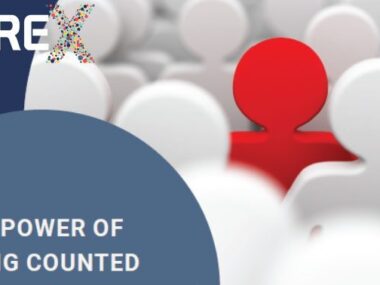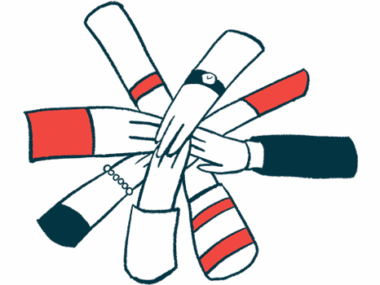Accepting support from others is one of my biggest challenges
Between aHUS and a family crisis, I'm recognizing I need help sometimes
Written by |

Note: This column was updated March 17, 2025, to correct that the writing is taking an antibody therapy.
It all started with me collapsing onto the hard, cool concrete outside of an emergency room (ER), as I was too weak to step up 4 inches onto the sidewalk. I know I must’ve been a wild sight — a thinning version of myself covered in huge purple and black bruises, hospital bracelets, a dialysis port hanging out of my chest, and multiple IV leads in my arms. That was the moment I had to start accepting support.
In September 2020, I nearly died from hemolytic anemia and multiorgan failure caused by a rare disease called atypical hemolytic uremic syndrome (aHUS). The day I fell was three weeks into my stay in the intensive care unit (ICU). I was worried my car battery would fail because my car had been sitting in the ER parking lot for so long. So I made the bad decision to sneak out of the ICU, find my vehicle, and start it myself in order to charge the battery.
I remember thinking, “I’m a grown woman, I’ve got this. It won’t take me long.” But I was so very wrong.
I didn’t want to bother anyone by asking for help, but I had no idea it would take me two hours to find the ER where I’d been admitted to the hospital, or that I’d be too weak to step onto the curb.
That was the first of many moments on my aHUS journey that required me to accept support from others. According to a Medical University of South Carolina Health article, about 50% of critical care patients experience some kind of impairment up to a year after an ICU stay. I would need help for a long time to come.
A flood of support from my community
Recently, the wrath of Hurricane Helene served as a harsh reminder that it’s OK to accept help.
My parents went missing following the “once-in-a-thousand-years” storm that caused severe flooding and damage in western North Carolina. After three weeks of searching, we learned that they’d both perished in the flood.
However, organizing searches, checking shelters, and creating a timeline proved difficult, as I live two hours away. I’d never had to rely on strangers more in my life.
Life was still “normal” on my side of the state, which meant that my boys still had school and I still had work, antibody therapy, and doctor appointments. First, I asked for help on social media. I reached out to friends and family and posted my parents’ photos in local Facebook groups to check if anyone had seen or heard from them.
Next, I stalked community photos taken by strangers at supply hubs to look for a glimpse of my parents. Much to my surprise, we got a hit within two days. A stranger contacted me on Facebook and said she may have seen them at the shelter. She video-called me and walked all over so we could ask around. We didn’t find them that day, but I was shocked and humbled that this stranger would take the time to help me, even though her world was falling apart around her.
As hours turned into days and then weeks, I began getting dozens of messages and comments daily from people asking if I needed help searching. My family and I made several trips to my parents’ town as well, but traveling and searching were difficult due to my illnesses.
Everyone on the western side of the state had been through an immense trauma, but people still volunteered and bent over backward to help. I hate accepting assistance from others because I don’t want to be a bother. These people had lost so much. Who was I to use up so many resources?
But whether I asked for it or not, I had an entire community rooting for me and happy to help in any way they could. People drove all over to check shelters, walked around the supply hubs with my parents’ photos, helped us shovel walkways through the mud so we could search their home, and so much more.
Once they were found and identified, I was faced with the challenge of planning their memorial and cremation. How was I going to plan a service in a city with a massive infrastructure breakdown? Thankfully, people supported me in that process as well. An aunt helped find a location that had water and power, my co-workers at Bionews, the parent company of this website, helped to pay for the service, and my father’s employer will provide food for the service and help with the cremation.
I had some support when I first got sick, but that was during the height of COVID-19, so resources were thin. But the support and help I’ve received since my parents died has been unimaginable and overwhelming. It’ll always be hard for me to accept support, but at least I’ve learned to recognize that we all need help sometimes.
Note: aHUS News is strictly a news and information website about the disease. It does not provide medical advice, diagnosis, or treatment. This content is not intended to be a substitute for professional medical advice, diagnosis, or treatment. Always seek the advice of your physician or other qualified health provider with any questions you may have regarding a medical condition. Never disregard professional medical advice or delay in seeking it because of something you have read on this website. The opinions expressed in this column are not those of aHUS News or its parent company, Bionews, and are intended to spark discussion about issues pertaining to aHUS.







Leave a comment
Fill in the required fields to post. Your email address will not be published.